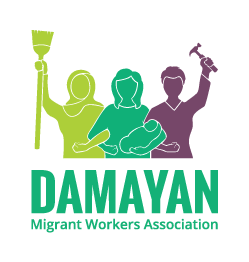Damayan gets Digital at T'ruah and Auburn Seminary Media Training
On Tuesday July 14, Simone, Sade, and Riya were invited by ally organization T’ruah to represent Damayan at Auburn Seminary’s Media Training Workshop. The workshop focused on digital organizing using media, a modern strategy for outreach and community development. Social media has an interesting dynamic: it can potentially bring both good and bad attention to an issue. But when utilized with effective strategies, it’s a dangerously powerful tool organizers can use to bring about enormous change.
Auburn Seminary’s approach for digital organizing is smart and sensible. It used the issue of solitary confinement, specifically Kalief Browder’s story, as an applicable case study. First, it emphasized the importance of crafting a solid core message by having three different ideas about the core message, and then having three supporting points for each idea. This structure, reinforced by statistics and anecdotes, establishes the driving force of the cause via a stable argument. Then, it stressed the utmost significance of language and words. In a society that prefers messages in 140 characters or less, words must be selected carefully to grab the public’s attention and interest. Language can mold a person’s viewpoint or influence them to change it.
During interviews, being precise and confident makes language more effective. Core messages with absolutes and certainty portray an easier narrative, and is better perceived by the media. An interview is a controllable debate to show yourself and your cause in the best possible light. Therefore, it helps to prepared to be caught off guard. An interviewer may ask an irrelevant question or touch on a sensitive matter to create controversy. To counteract this, anticipate these types of questions and construct responses that will easily shift the conversation back to the core message. Knowledge of pop-culture, current events, the secular calendar, and the religious calendar adds to potential segues and makes the core message relevant to a broader audience, since media isn’t local anymore.
To further expand outreach, organizations should consider creating online petitions and emailing potential advocates. These digital initiatives are easy to start and are accessible to anyone with smartphone or computer. Once again, language is crucial for a successful petition and email. The headline, short and concise, must pique the reader’s interest. The content should educate the reader on the petition’s cause and persuade them to participate. Online petitions are empowering and function on a timely basis. Email blasts should follow up on the petition informing the advocate of the next course of action, asking for donations to fund the cause, and ultimately thanking them for partaking. By mobilizing online, activists can connect with demographics that are outside of their network, thus building a stronger, unified community.
